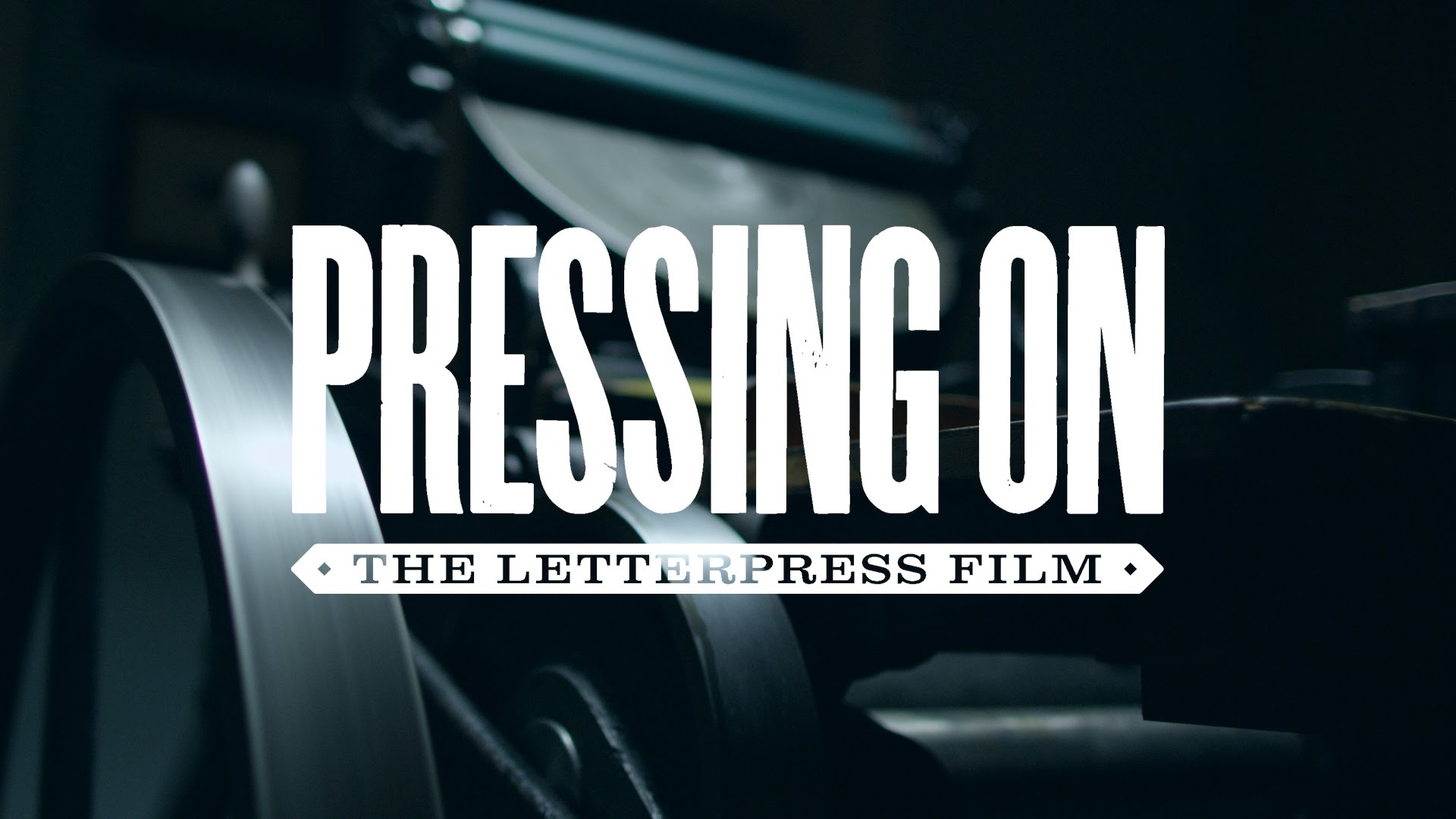Paul Aken operates the Platen Press Museum which is located, appropriately enough, in Mt. Zion, Illinois. Although it is coincidental, the religiously themed name of Aken’s city harkens back to the primary use of movable type after it was invented in Germany in 1439 by Johannes Gutenberg: It was used to print the Bible, which up to then had been unavailable to the masses. Production of Bibles, which people could read for themselves without a priest or other religious functionary reading it to them, was an important stimulus for the Religious Reformation.
In Pressing On: The Letterpress Film, released this week on VOD and DVD/BluRay, we see what has become of movable type and the presses into which they were set since the advent of computerized printing. Aken has hundreds of the presses in his museum, where he teaches youngsters rediscovering the old technology how to use and maintain them.
In a tour that took writers/ directors Erin Beckloff and Andrew P. Quinn through Illinois, Indiana, Iowa, Ohio, Tennessee, West Virginia, and Wisconsin, we meet proprietors of print shops who are hanging on, bucking the trend of instant print, as well as museum operators, collectors, and poster makers, all of whom are dedicated to not only saving pieces of history, but continuing to utilize them.
The film is both historical and nostalgic, and notwithstanding some inspiring photography by Joe Vella, could benefit from some judicious cutting. There are too many “talking heads,” saying essentially similar things, to command general interest, although enthusiasts will lap up every word spoken by the featured press men and women.
In addition to Aken, we are introduced by the filmmakers to letterpress enthusiasts Gregory J. Walters, Richard Hopkins, Stephanie Carpenter, Rick Van Holdt, Adam & Tammy Winn, Jim Moran, Jim Daggs, Dave Churchman, Jim Shearden, Celene Aubry, Dave Peat, Jennifer Farrell, Paul Brown, and Andrew Churchman. Andrew is the son of Dave Churchman, who died in 2015, while the film was still in production. Andrew learned about typesetting and printing from his father, and while he has great respect for the craft, time will tell whether he will have the same enthusiasm and sense of mission.
My first exposure to a letter press came in 1962 at the Dixon-Bell printing establishment in Los Angeles, which, among other newspapers and magazines, was the printer for the UCLA Daily Bruin, where I cut my journalistic teeth. I remember the smell of the ink, the rhythm of the press, the hiss of the melting metal used in the linotype machines. Here impatient student journalists learned to read type upside down, while more patient ones waited for the printers to run off a proof to be corrected before the newspaper went to final printing.
So, for me, and for fellow journalists and dormer print shop workers, this nostalgic documentary has appeal; it brings back memories. Whether Pressing On will find much favor with always-hurried audiences during an era when everything seems disposable, I tend to doubt, but I hope it will.
Republished from San Diego Jewish World


























